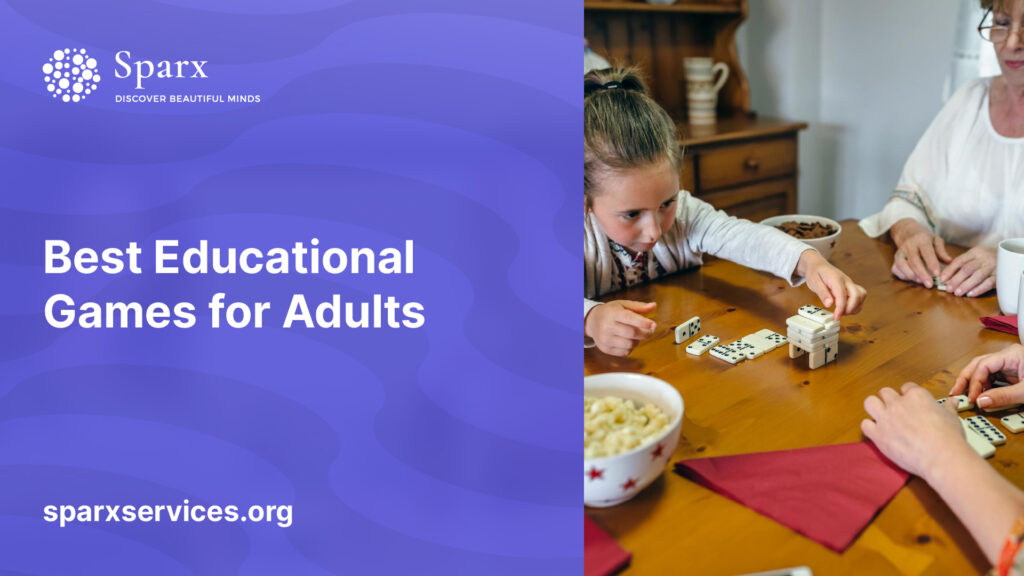Fun Cognitive Test Games Examples and Benefits for Your Brain

Enhancing Brain Power Through Play
In an era characterized by rapid information processing and mental agility, finding enjoyable methods to enhance cognitive abilities has become increasingly important. Integrating cognitive test games into one’s daily routine not only offers a source of entertainment but also serves as an engaging way to challenge and improve mental functions. These activities encourage you to think critically, solve problems creatively, and develop heightened awareness, all of which contribute to better mental health and resilience over time.
What Are Cognitive Test Games?
Cognitive test games are specifically developed to stimulate various parts of the brain. They address a wide array of critical mental skills, including:
- Memory: Engaging games can significantly enhance your ability to retain information, recall past events, and improve overall memory function.
- Attention: Many games require concentration and focus, which help sharpen your ability to filter distractions and maintain sustained attention over time.
- Problem-solving: These games typically present challenges that require strategic thinking and the ability to devise effective solutions, cultivating sharper analytical skills.
- Processing speed: Timed tasks found in cognitive games can improve how quickly you process information, leading to faster decision-making abilities.
Engaging in these cognitive test games not only provides leisure but also promotes long-term cognitive health. Recent studies have shown that regular brain game participation may enhance neuroplasticity, which is the brain’s ability to reorganize itself by forming new neural connections, an essential aspect of mental resilience.
Examples of Fun Cognitive Test Games
To embark on your journey to improved cognitive function, consider incorporating a few of these popular game types into your leisure time:
- Sudoku: This classic number puzzle not only promotes logical reasoning but also challenges your ability to think several steps ahead.
- Crossword Puzzles: Engaging with crosswords is an excellent way to expand your vocabulary while enhancing your memory and recall abilities.
- Memory Matching Games: These are fantastic for developing attention to detail and improving memory retention, as players must remember card placements.
- Brain Training Apps: Innovative platforms like Lumosity and Peak offer a variety of games designed specifically for cognitive enhancement, allowing you to track your progress over time.
Exploring these engaging options not only offers mental stimulation but also fosters a proactive approach to mental fitness. As you dive deeper into these cognitive challenges, you may find your mindset evolving, equipping you with better tools to tackle daily challenges more effectively. Take the plunge and experience how a playful approach can transform your cognitive journey.


SEE ALSO: Click here to read another article
Exploring the Benefits of Cognitive Test Games
Engaging in cognitive test games provides more than just a break from your daily routine; it unlocks a treasure trove of mental health benefits relevant for both young and older adults. Playing these games can lead to tangible improvements in brain function, particularly in areas that are vital for everyday tasks. As we age, our brains naturally undergo changes, making it essential to actively maintain and enhance our cognitive capabilities. Here’s a closer look at the specific advantages of incorporating these games into your daily habits.
Cognitive Function Boost
One of the most significant benefits of cognitive test games is their ability to boost cognitive functions. Regular engagement in these activities can lead to enhanced memory retention, increased attention span, and improved problem-solving skills. Each of these areas plays a critical role in ensuring that you remain sharp and capable as you age. Research indicates that engaging in mentally stimulating activities can increase the brain’s processing speed, which helps in multitasking scenarios common in professional settings.
Stress Reduction and Emotional Well-being
Playing cognitive games offers an escape from daily stressors. Engaging your mind in a fun and challenging way results in the release of endorphins, the body’s natural feel-good hormones. These games create an environment for positive emotions and can significantly reduce anxiety levels. When you break from stressors to focus on a puzzle or game, your brain shifts gears, facilitating a sense of calm and relaxation.
Social Interaction and Connectivity
Cognitive test games can also serve as a social platform. Many games are designed for multiplayer modes, allowing friends and family to join in on the fun. This social aspect not only fosters stronger relationships but can also enhance cognitive performance through collaborative problem-solving. Consider participating in community events at local libraries, senior centers, or game cafes that often host cognitive game nights. This social engagement is particularly important in a society where isolation can adversely affect mental and emotional health.
Varied Game Types for Diverse Enjoyment
The world of cognitive test games is incredibly diverse, catering to a wide audience. Here are a few examples to consider exploring:
- Logic Games: Cracking codes, riddles, or brain teasers that enhance logical reasoning skills.
- Trivia Quizzes: These games encourage memory recall and knowledge retention while providing a competitive, fun atmosphere.
- Board Games: Classic games like chess and Scrabble facilitate strategic thinking and vocabulary growth, respectively.
- Mobile Apps: Platforms like Elevate and Brain Age make cognitive fitness accessible and engaging right from your smartphone.
By diversifying your cognitive game experiences, you not only keep boredom at bay but also maximize the potential for various cognitive improvements. The next time you reach for a game, consider how it might challenge your brain and raise your cognitive skills, paving the way for greater mental health and resilience.
| Category | Description and Benefits |
|---|---|
| Memory Games | Enhance short-term memory through engaging visual and auditory challenges, improving daily memory retention. |
| Puzzle Games | Encourage critical thinking and problem-solving skills, helping players develop strategies and solutions that can be applied to real-life situations. |
| Speed Tests | Boost reaction times and cognitive processing speed, making players more agile in both mental and physical activities. |
| Trivia Quizzes | Expand general knowledge while fostering a competitive spirit, leading to enhanced learning and retention of new information. |
| Word Games | Sharpen language skills and vocabulary, allowing for better communication and expression in both personal and professional settings. |
Engaging in these fun cognitive test games not only provides an entertaining respite but also fortifies mental faculties essential for daily life. Whether you’re playing alone or competing with friends, these activities deliver significant benefits that contribute positively to your overall cognitive health. Each category of game targets different aspects of brain function, enabling a more rounded approach to mental fitness. With a variety of options available, exploring these games can spark curiosity and lead you to a deeper understanding of how they work to enhance your cognitive abilities.
SEE ALSO: Click here to read another article
Unleashing Creativity and Critical Thinking
Beyond the foundational cognitive benefits, cognitive test games also serve as a powerful catalyst for creativity and critical thinking. The brain thrives on challenges and stimulating scenarios, which cognitive games inherently provide. For instance, engaging in design-based games like Portal 2 or construction games such as Minecraft encourages lateral thinking, where players must devise innovative solutions to complex problems. This kind of creative engagement not only nurtures the imagination but also refines analytical skills, encouraging players to think outside of conventional frameworks.
Memory Enhancement Techniques
Cognitive games often integrate unique techniques aimed at enhancing memory performance. One popular approach is the use of mnemonics, which aids in the retention of new information. Games like Lumosity incorporate this method, challenging players to remember sequences, patterns, or locations, thereby improving working memory. According to the Alzheimer’s Association, regular engagement in memory-focused games can help mitigate cognitive decline associated with aging.
Real-World Applications
The skills developed through cognitive test games often translate seamlessly into real-world applications. For example, those who play strategic games may find that their ability to foresee consequences and manage long-term tasks improves significantly. This can be particularly beneficial in high-stakes environments, such as healthcare or corporate settings, where quick decision-making is crucial. Games like StarCraft require players to manage resources efficiently, plan attacks, and adapt to ongoing changes on the battlefield, providing a mental workout that closely mirrors real-world scenarios.
Online Communities and Global Interaction
Another exciting aspect of cognitive test games is the opportunity for online engagement. Many of these games have thriving communities that can provide both social interaction and a platform for collaborative learning. Websites like BrainBashers or mobile platforms such as Peak allow users to challenge friends or join global leaderboards, turning solitary gaming into a communal experience. This interaction can enhance motivation and accountability, driving players to hone their cognitive skills more diligently.
Gamification in Learning Environments
Cognitive test games have also made significant inroads into educational contexts. Teachers and educators are increasingly incorporating game-based learning approaches to engage students in subjects like mathematics, science, and art. By turning curriculum subjects into enjoyable games, students are more likely to retain information and develop essential skills. For instance, educational versions of games like Quizlet allow students to engage with material through interactive quizzes and flashcards, promoting a fun learning environment.
The application of cognitive games in various settings and their versatility showcases their value beyond mere entertainment. By understanding how different game types cater to diverse cognitive needs, players can select activities that align with their personal goals—be it improving memory, enhancing problem-solving abilities, or simply having fun while engaging their minds. With the array of options available, from traditional board games to cutting-edge mobile apps, the potential for mental growth is vast and inviting.
SEE ALSO: Click here to read another article
Conclusion: Elevating Your Mind Through Play
In summary, cognitive test games stand as a remarkable intersection of fun and intellectual growth, offering a plethora of benefits for your brain. By engaging in these games, players not only enhance their memory and critical thinking skills but also boost creativity and real-world problem-solving abilities. The diverse range of options—from interactive puzzles to strategic simulations—provides a tailored experience for every individual seeking mental stimulation.
Moreover, the rise of online gaming communities fosters social interaction and collaborative learning, making cognitive development a shared journey rather than a solitary task. With engaging platforms like Lumosity or Quizlet, players can track their progress and encourage one another, further motivating them to challenge their cognitive limits.
Importantly, schools and workplaces are increasingly adopting gamification strategies to enhance learning and productivity, marking a shift towards more engaging and effective education methods. By integrating game-based learning into curricula and training programs, educators and employers can help individuals cultivate essential skills while keeping the process enjoyable.
The evidence supporting the benefits of cognitive games is vast and compelling, suggesting a shared message: by incorporating these games into your daily routine, you unlock not only a source of entertainment but also a pathway to a sharper, more agile mind. As you explore various fun cognitive test game examples, consider how you can leverage them to enhance your mental fitness, ensuring that learning remains as enjoyable as play.
Related posts:
Maximize Mental Health Benefits of Cognitive Testing Explained
Practical Guide Interpreting Cognitive Test Results Effectively
Boost Cognitive Test Performance Effective Strategies Explained
Cognitive Tests vs Intelligence Tests Key Differences Explained
Preparation Tips for Online Cognitive Tests A Comprehensive Guide
How Cognitive Tests Aid Early Diagnosis of Diseases Effectively

Beatriz Johnson is a seasoned puzzle enthusiast and writer with a passion for unraveling the complexities of mind games and brain teasers. With over a decade of experience in the world of puzzles, she specializes in topics like logic games, riddles, and strategic challenges. Through her work, Beatriz empowers readers to sharpen their problem-solving skills, think creatively, and stay engaged in the ever-evolving landscape of mind games and puzzles.